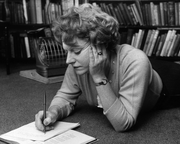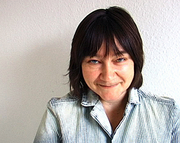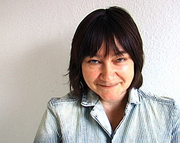More articles Tuesday 21 August 2018 12:30pm
Ali Smith: Fiction is ‘one of our ways to get to truths that are really difficult to talk about’
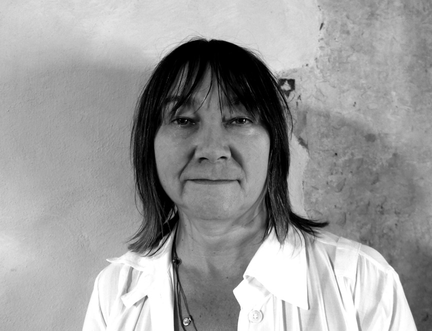
We’re currently in a culture “that insists on lying as its delivery of how we’re living,” believes the acclaimed Scottish author Ali Smith. She was speaking last night with Scotland’s First Minister, Nicola Sturgeon, during a sold-out event at the Edinburgh International Book Festival.
“Fiction and lies are the opposite of each other,” Smith insisted. “Lies go out of their way to distort, or to turn you away from, the truth. Fiction is one of our ways to get to truths that are really difficult to talk about, that we haven’t yet been able to articulate, or see yet; truths that we come to articulate via a story.”
The two women were talking primarily about Autumn and Winter, the first half of a planned quartet of novels – titled after the seasons – which Smith has written and seen published with remarkable speed, giving them – according to Sturgeon – a sense of them being “a first draft of history” about the world of Brexit and Donald Trump.
“I do know that the novel is a hopeful form,” Smith said. “The very act of a novel takes you through a journey, and it’s always a social one. The novel is helplessly societal. Where the short story is more lyrical, closer to the poem, the novel shows us consequence, shows us sequence. Even if it doesn’t do what the normal novel might do – start with ‘Z’ and end with ‘A’ – there is still consequence and sequence in the novel.
“Therefore things pass. Therefore time passes. And the thing about writing these novels, named after the seasons, has been a total blessing for me, because the seasons come round – turn, turn, turn. They move and shift us through time, and time itself is an agent of change, if we want it to be an agent of change.”
When Sturgeon suggested that Smith’s writing was ‘small p’ political, the author asked how it could be otherwise. “Everything is political. Why would we think it isn’t? Deciding that something is not political is political; it’s a political act.
She accepted that you can’t force politics into a story. “The story will just die a death; it’ll just be dead on the floor. You can’t take an agenda to a story. But any story will be political. Everything we do and everything we don’t do is political; we think it isn’t, but it is, because of the ‘polity’, because of the people.
“The thing about the novel that I trust is that the novel is societal. The novel, particulary in English, has been a societal form. And it will tell us where we are; it will simply tell us by the story it tells. A novel that is avoiding, as such, politics is just as political as a novel that addresses more squarely something you could call ‘small p’ politics.”
Earlier in the day, Smith told the audience, she had been at the National Library of Scotland looking through the Muriel Spark Archive. “Muriel Spark will never die,” she explained about her own literary idol. “She is alive. That is the thing about Spark. Her books are coming into their time as we read them, and they will be forever coming into their time; that for me is the most astonishing thing. She let me know that the novel could do anything; it could be anything.”
Look, Listen & Read
- 2025 Festival:
- 9-24 August
Latest News
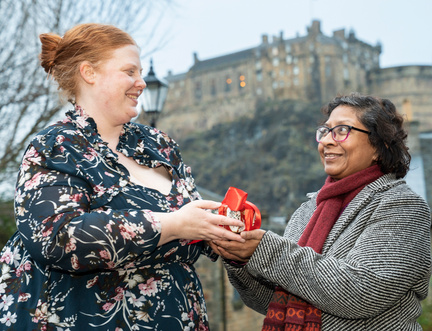 Communities Programme participants celebrate success of 2024
Communities Programme participants celebrate success of 2024

